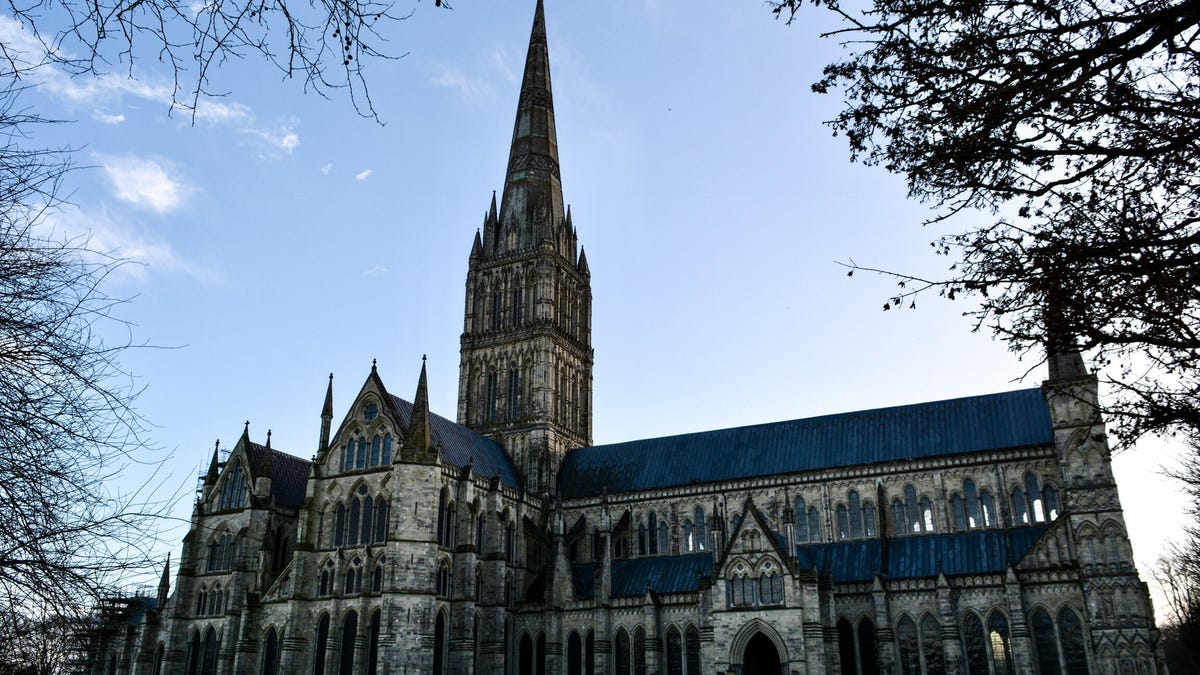Trial begins for man who allegedly tried to steal the Magna Carta
A jury gets to hear the details of the brazen plot, which was foiled, unsurprisingly.

England's Salisbury Cathedral is home to the Magna Carta.
In the first National Treasure film, Nicolas Cage's character deploys a seamless plan to steal the Declaration of Independence. It's not just for kicks, of course -- a clue to a treasure is hidden in the historic document. But an alleged real-life plot to steal the Magna Carta didn't go as smoothly, according to The Guardian on Monday.
Mark Royden, 47, of Canterbury, England, allegedly plotted to steal the Magna Carta from Salisbury Cathedral in 2018, but the thick glass protecting the document and the brave actions of staff and visitors foiled his plans, the Guardian reported. His trial started Monday.
After scouting out the position of CCTV cameras in the cathedral, Royden allegedly took a hammer to the document's reinforced glass case, according to a prosecutor's opening statement at the trial, Crown Court Clerk Linda Vine told CNET. A fire alarm was triggered and a few cathedral employees and tourists reportedly tackled the man, who was clad in gloves and a hood. Vine told CNET the prosecution's case will close at some point Tuesday.
The crime is said to have caused £14,466 (about $18,881) in damage. Royden reportedly denies causing any damage or trying to steal the document.
The Salisbury Cathedral declined to comment while the case is ongoing.
The Magna Carta, which means The Great Charter, was signed in 1215 and is a peace treaty. It ensures that everyone is subject to the law, even the king. It guarantees the rights of individuals, the rights to justice and the right to a fair trial.
Originally published Jan. 27.
Update, Jan. 28: Adds comment from the Salisbury Crown Court.

